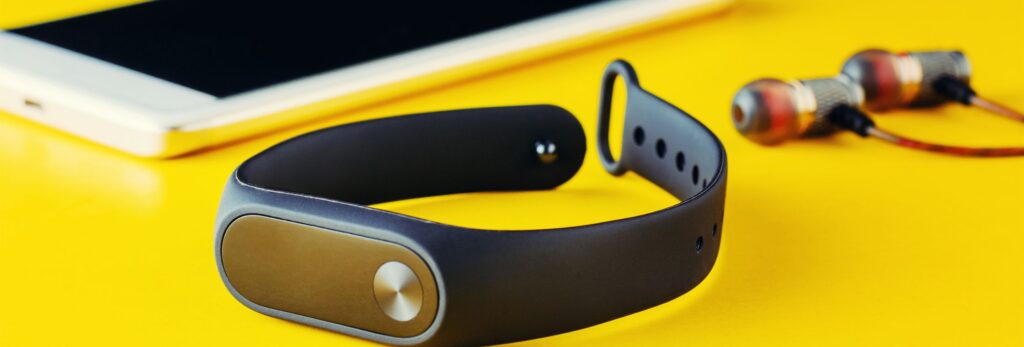Can Fitness Trackers Count Calories?
Introduction
This question is often asked by those looking to monitor their daily energy expenditure and achieve their fitness goals: Can Fitness Trackers Count Calories? Fitness trackers have become essential tools for health-conscious individuals, offering a range of features from step counting to heart rate monitoring. But how accurate are these devices when it comes to counting calories? In this article, we will delve into the mechanisms behind calorie counting in fitness trackers, evaluate their accuracy, and explore their benefits and limitations.
Table of Contents
What This Post Covers
In this comprehensive guide, we will cover:
- How fitness trackers calculate calories.
- The technology and sensors involved in calorie counting.
- Factors that affect the accuracy of calorie measurements.
- Comparisons with other methods of calorie tracking.
- Tips for improving the accuracy of calorie counts.
- Common concerns and troubleshooting.
What is Calorie Counting in Fitness Trackers?
Calorie counting in fitness trackers refers to the estimation of the number of calories burned by the user throughout the day. These devices use a combination of data inputs, including physical activity, heart rate, and personal metrics, to estimate the total calories burned. This information helps users manage their energy balance, which is crucial for weight management and overall health.

How Do Fitness Trackers Calculate Calories?
The Role of Sensors
Fitness trackers use various sensors to collect data on the user’s physical activity and physiological responses. The primary sensors involved in calorie counting are:
- Accelerometer: Measures motion and movement, helping to estimate physical activity levels.
- Heart Rate Monitor: Tracks heart rate to gauge exercise intensity and calculate calories burned more accurately.
- Gyroscope: Detects orientation and movement, providing additional context for physical activities.
Algorithm and Data Inputs
The algorithms used by fitness trackers process the data collected by the sensors and combine it with user-specific information, such as:
- Age
- Weight
- Height
- Gender
- Basal Metabolic Rate (BMR)
The BMR is a critical factor, representing the number of calories the body needs at rest to maintain basic physiological functions. By combining BMR with activity data, fitness trackers estimate the total calories burned during various activities.
Factors Influencing Accuracy
Individual Differences
The accuracy of calorie counting can vary based on individual differences such as body composition, fitness level, and metabolic rate. Fitness trackers use generalized algorithms, which may not account for unique individual variations.
Type of Activity
Different types of physical activities are measured with varying degrees of accuracy. Activities with consistent, repetitive movements, such as walking or running, tend to yield more accurate calorie counts. In contrast, activities like weightlifting or yoga, which involve less predictable movements, can be more challenging for fitness trackers to quantify accurately.
Sensor Quality
The quality and sensitivity of the sensors used in a fitness tracker significantly impact its accuracy. High-end fitness trackers typically have more advanced sensors, providing more accurate calorie estimates compared to basic models.
Positioning and Usage
Wearing the fitness tracker correctly and consistently is essential for accurate calorie counting. Incorrect positioning, such as a loose fit on the wrist, can lead to inaccurate data collection and calorie estimates.
Benefits of Calorie Counting with Fitness Trackers
Health Monitoring
Accurate calorie counting helps users monitor their daily energy expenditure, which is essential for maintaining a healthy weight and overall well-being. Understanding how many calories you burn can inform dietary choices and physical activity levels.
Goal Setting and Motivation
Fitness trackers allow users to set personalized fitness goals based on their calorie expenditure. Tracking progress towards these goals can be highly motivating, encouraging users to stay active and make healthier lifestyle choices.
Personalized Fitness Insights
By providing detailed data on calories burned, fitness trackers offer personalized insights into your fitness routine. This information can help you optimize your workouts and better understand the impact of different activities on your calorie expenditure.
Comparisons with Other Methods of Calorie Tracking
Manual Logging
Manual logging of calories burned can be tedious and prone to errors. Fitness trackers automate this process, providing continuous and convenient tracking. However, manual logging can sometimes offer more precise control over the details of specific activities, especially if the tracker’s algorithms are not well-calibrated for certain exercises.
Metabolic Testing
Metabolic testing, such as indirect calorimetry, provides highly accurate measurements of calorie expenditure by analyzing respiratory gases. While this method is more accurate, it is also more expensive and less accessible than using a fitness tracker.
Smartphone Apps
Many smartphone apps offer calorie counting features similar to fitness trackers. However, they often rely on manual input and estimations, which can be less accurate and convenient than the automated tracking provided by wearable devices.
How Can Fitness Trackers Count Calories?
Fitness trackers can estimate the number of calories burned by combining data from various sensors, such as accelerometers and heart rate monitors, with user-specific information like age, weight, height, and gender. While these devices provide a convenient way to track calorie expenditure, their accuracy can be influenced by factors such as individual differences, the type of activity performed, and the quality of the sensors used. By understanding these factors and following best practices, users can maximize the accuracy of their fitness tracker’s calorie counting capabilities and effectively manage their health and fitness goals.
Tips for Improving the Accuracy of Calorie Counts
Regular Calibration
Some fitness trackers allow for calibration through specific activities. Regularly calibrating your device by performing known activities can help improve its accuracy.
Consistent Usage
Wear your fitness tracker consistently and in the correct position. Ensure a snug fit to allow the sensors to accurately capture your movements and physiological data.
Update Personal Information
Keep your personal information, such as weight and age, up to date in the fitness tracker’s settings. Accurate personal data ensures the algorithms can provide better calorie estimates.
Combine with Other Data
Use additional data points, such as heart rate and perceived exertion, to cross-check the calorie estimates provided by your fitness tracker. This holistic approach can help you get a more accurate understanding of your calorie expenditure.
Common Concerns and Troubleshooting
Overestimation or Underestimation
If you suspect your fitness tracker is overestimating or underestimating calorie counts, review its calibration and settings. Ensure it is worn correctly and that your personal data is up to date. If issues persist, consult the manufacturer’s support for further assistance.
Inconsistent Data
Inconsistent data can result from irregular wearing patterns or sensor malfunctions. Consistent usage and proper maintenance, including regular cleaning and software updates, can help mitigate these issues.
Compatibility with Activities
Some fitness trackers are better suited for specific types of activities. If your primary activities are not well-tracked by your current device, consider a fitness tracker designed for those specific activities.

Conclusion
So, can fitness trackers count calories? The answer is yes, fitness trackers can estimate the number of calories burned based on a combination of sensor data and user-specific information. While they offer a convenient and generally accurate method for tracking calorie expenditure, their accuracy can be influenced by various factors, including individual differences, the type of activity, and the quality of the device. By understanding these factors and following best practices for usage, you can maximize the accuracy of your fitness tracker’s calorie counting and better manage your health and fitness goals.
Frequently Asked Questions
1. How accurate are fitness trackers at counting calories?
Fitness trackers provide reasonably accurate estimates of calories burned, but their accuracy can vary based on factors like sensor quality, individual differences, and the type of activity.
2. Do fitness trackers account for all types of physical activity?
Fitness trackers are more accurate for activities with consistent, repetitive movements, such as walking or running. They may be less accurate for activities with varied or less predictable movements, like weightlifting or yoga.
3. How can I improve the accuracy of my fitness tracker’s calorie count?
To improve accuracy, regularly calibrate your device, ensure it fits snugly, keep your personal information updated, and use consistent positioning on your wrist.
4. Are there fitness trackers that are more accurate than others?
Yes, higher-end fitness trackers generally have more advanced sensors and algorithms, providing more accurate calorie estimates compared to basic models.
5. Should I rely solely on my fitness tracker for calorie counting?
While fitness trackers offer convenient and automated calorie counting, it is beneficial to cross-check with other methods, such as perceived exertion or manual logging, to ensure a comprehensive understanding of your calorie expenditure.

My name is Oje and I’m obsessed with finding the latest tech gear to help people track progress and solve problems more efficiently. I spend countless hours researching and testing innovative apps, wearables, and devices for fitness, health, productivity, and more.
